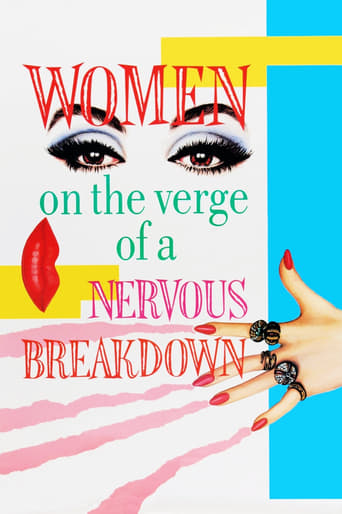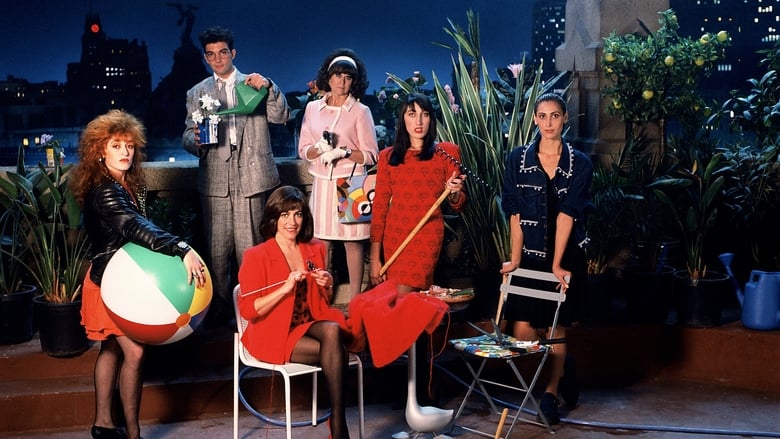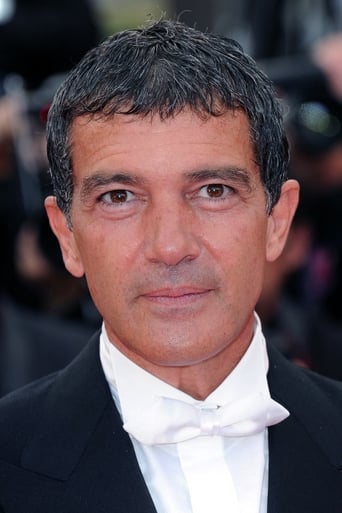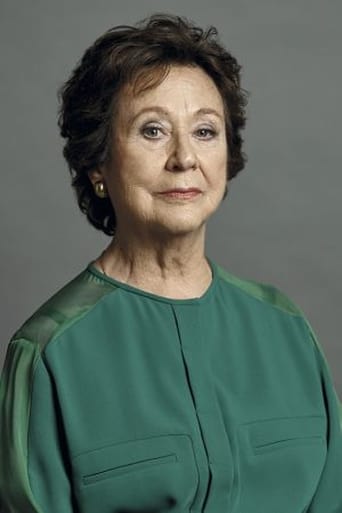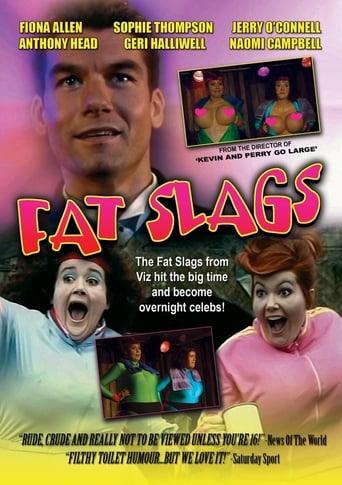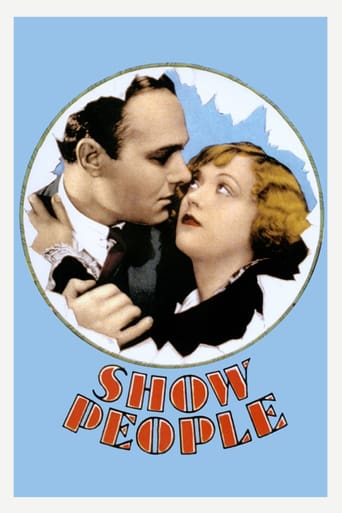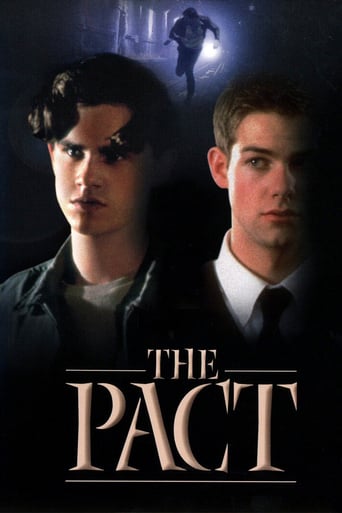Women on the Verge of a Nervous Breakdown (1988)
Pepa resolves to kill herself with a batch of sleeping-pill-laced gazpacho after her lover leaves her. Fortunately, she is interrupted by a deliciously chaotic series of events.
Watch Trailer
Cast


Similar titles
Reviews
Good movie but grossly overrated
As Good As It Gets
Absolutely Fantastic
The film's masterful storytelling did its job. The message was clear. No need to overdo.
Women on the Verge of a Nervous Breakdown operates in a farcical world of comic proportions, propelled by the strange magic of Pedro Almodóvar. He makes films like no other; melodramas in an age where the word itself is a smear, an adjective designed to signal ludicrous love plots, overly theatrical acting, music which swoons and sighs. The film has all this, and then some. Look to his mise-en-scene, dyed luridly in a technicolor mash of crimson, deep blue and burnt sienna, as if even the furniture is flushed from all the passion in the air. When Pepa is unexpectedly left by her boyfriend, the world turns tospy turvy, and the result of her quest to discover the truth (it's never quite a straightforward explanation) is a romp reminiscent of an old school Hollywood screwball, where the characters seem to walk and talk in fast motion, throw themselves at new plot revelations, and are held hostage to their emotions. And Almodóvar would not have it any other way. The plot is the plot, which is to say it is a clothesline onto which increasing ridiculous situations are hung onto the main story-line, and Pepa is continually sidetracked in her mission. The first of these obstacles is her best friend Candela, who has been romanced and abandoned all in the same weekend, and now fancies suicide via jumping over the balcony. Then it's revealed her love affair was with a wanted Shiite terrorist, which suddenly ramps up the drama, and brings police into the fold (and the apartment). Also visiting is Carlos, son of Pepa's lover, and her haughty girlfriend, who are real-estate hunting and become unwillingly wrapped up in the whole mess. Almodóvar's penchant for genre mish-mash reveals itself here, constructing a locked room of increasing complexity and convoluted love triangles (or is it a rectangle, pentagon...), a revolving door of incensed bit characters who all crave the spotlight. Nearly all of them are women. As per the title, women fling themselves into pits for love, willingly embarrass themselves in these pursuits (notice the visual gag with the taxi driver's eye-drops, riffing on the genre of weepies), begin to concoct all kinds of tall tales in their heads. Almodovar's women are bravely undignified, operate at a furious, screwball pace, and come in all shapes and sizes. He may be one of the few directors to continually spotlight middle-aged love, grief and desire in the feminine form. There is no judgement here, only empathy and understanding. He casts Rossy de Palma who looks and speaks the part of an antagonistic witch, but look who is cheating on her while she is unconscious: her slimy, boyish partner. And see her value in the final scene, where Pepa has been chasing an absent masculine presence for the entire film only to find solace right beside her. Almodóvar's early films were the celebratory fireworks of a cultural explosion in post-fascist Spain. His initial comedies were instantly recognisable for their striking, campy style, showcasing never before screened minorities, flirting with boundaries of sexuality and gender through vibrant mise-en-scene, emotive music and outrageous costume and makeup. As he matured as a filmmaker, he recognised the potential for further playing in and between these fiery caricatures, using them as not merely flashy rebellion but as a way of investigating and rebuking common stereotypes, particularly of women. The initial scenes show the film wresting with these; Pepa and Ivan are both voice actors for trashy romance films, filling in for younger, more attractive starlets, with Pepa herself seemingly unable to reconcile the screen and the reality of her own love life. Ivan's voice is hinted to be the common factor in all his flings; women flock like fireflies to the film star's rich baritone. Pepa is one of those flies, and cannot stand to be discarded. Almodóvar further plays with his images. The set design of Pepa's coveted penthouse is key, with shiny baubles and trinkets set up in all corners, globes, lamps, statues and other trash scattered through the rooms. The plants are green, too green, and probably fake - it's a tapestry of kitsch. The terrace aggressively pursues that Californian dream, with tacky beach apparel, palm trees and a view to die for. But Pepa is too busy to even appreciate it, least of all when Candela is about to climb over (look who is the only one to realise), instead rushing around all town in search of her lost man. Only when she finally admits to all this silliness and discards that part of her life does she have the chance to sit down and really gaze at the skyline. The chase is over, the loose ends have been tied up, her secret revealed (the film is basically a two hour set up for a pregnancy brain joke). She is at peace. Her life isn't so bad after all.
Offbeat crazy comedy with hilarious results and turns out to be pretty funny . Almodóvar comedy starred by Spanish star cast plenty of likable humour and disconcerting plots . A film dubber woman called Pepa (Carmen Maura) is on the verge of a nervous breakdown when his lover named Ivan (Fernando Guillen) leaves her, and she tries to contact him to find out why he left her . In the opening scene Pepa (Carmen Maura) and Ivan (Fernando Guillen Cuervo) are dubbing to Spanish Johnny Guitar (1954). Pepa takes on Ivan's wife (Julieta Serrano) who is zealous because of his husband left her for her . Meanwhile , her clueless friend called Candela (María Barranco , though Victoria Abril turned down the role) appears in her flat . Candela who is as unsettling as she is afraid the police are looking for her because of her boyfriend seems to be a dangerous Islamic terrorist . There also meets Carlos (Antonio Banderas) , Ivan'son , and his girlfriend (Rossy De Palma) and amazing happenings take place . Pedro Almodóvar brings us a very mixed bag of outlandish characters , rapid dialogs , and absurd situations on a luxury flat . As a pregnant woman becomes involved into loving triangles , terrorists , revenger wives and faces the greatest danger, which we carry within ourselves . Enjoyable though silly film full of good taste , offbeat characters , embarrassing mood-pieces , fun scenes , sympathetic humor and sense of style but not totally satisfactory , including conventional as well as undiluted pitfalls . The picture deals with troubled people , off-the-wall comedy , absurdities , terrorism , jealousy and many other things . The movie is pretty well and turns out to be a superior comedy to Almodovar's previous and subsequent entries . The result is an amusing but sometimes absurd comedy ,including profanities , colorful frames and a crazy strings of plots . There are many references to Pedro Almodóvar's universe throughout the film . Pedro Almodóvar and Carmen Maura's personal relationship was seriously damaged during the shooting, which Maura even defined as a "living hell". It took 18 years for them to work again . On Carmen Maura , Almodóvar told : ¨If you divide the stages of my career and labelled them with the names of the people I've worked with, there's definitely a stage in my filmmaking that would be called The Carmen Maura Years, and those films were all in the 80s - although I did work with her again on Volver (2006). At the time, I felt she was absolutely the best vehicle I could find to tell my stories. She was the actress who had the best intuition, to connect with what I wanted from her. She could be very funny and very dramatic at the same time, so it was the perfect combination for me¨ . Nice interpretations by all star-studded cast as Maria Barranco , Fernando Guillen , Rossy De Palma , Julieta Serrano and full of familiar faces as Chus Lampreave as a caretaker , Witness Jehová , and other delightfully played roles such as Kiti Mánver , Guillermo Montesinos as Cabman , Eduardo Calvo , Loles León , Joaquin Climent , Lambordero , Ana Leza , among others . And a Hollywood/Spain super star : Antonio Banderas . In fact , this movie marks Antonio Banderas's 3th collaboration with Pedro Almodóvar , after Labyrinth of passions and Matador , subsequently they made : Atame , The skin I live in , I'm so excited , among others hits . As usual in most of Pedro Almodóvar's movies, there is a small role for Agustín Almodóvar, his brother and producer of the film, who plays a building employee . Atmospheric musical score by early deceased Bernardo Bonezzi , Almodovar's ordinary ; including known songs by Chavela Vargas . Colorful and luxurious cinematography by Jose Luis Alcaine . The motion picture was realized in his peculiar style by Pedro Almodovar ; he often uses symbolism and metaphorical techniques to portray circular story lines though here he directs a special comedy , including his ordinary touches . Almodovar directs throughout with splendid zip and he usually portrays strong female characters and transsexuals and along his career getting some important international prizes . His first feature film, Pepi, Luci, Bom (1980), was made in 16 mm and blown-up to 35 mm for public release . In 1987, he and his brother Agustín Almodóvar established their own production company : El Deseo, S. A. The "Almodóvar phenomenon" has reached all over the world , making his films very popular in many countries . Oscar-winning Spanish director Pedro Almodovar subsequently made successes such as Labyrinth of passions , Law of desire , Women on the verge of a nervous breakdown , Bad education , All about my mother , Talk to her , Broken embraces , The Skin I Live In and many others . The latest from acclaimed Spanish director , Pedro Almodovar's I'm So Excited (Los Amantes Pasajeros) competing for the inaugural best European comedy honor during the upcoming 26th edition of the European Film Awards .
excerpt, full review at my location.Director Pedro Almodovar shot to international fame in 1988 when Women On The Verge Of A Nervous Breakdown was released. It was nominated for an Oscar and won numerous other awards, as well as smashing box office records in Spain. It is a stylish black comedy that oozes visual flair and a sharp sense of humour from start to finish. It is easy to see why this film was so successful and why Pedro Almodovar has become such a cult icon. Women On The Verge Of A Nervous Breakdown, although slightly dated, has an incredible amount of charm, a great sense of visual style and a quirky wit that makes it a very enjoyable movie. If you are new to Almodovar, then this is the best film to introduce you to him. Women On The Verge Of A Nervous Breakdown is undeniably a grand landmark in Spanish film.
I don't think Pedro Almodóvar used to make better films than the ones he makes now; I believe he's always crafted very good movies. But maybe some elements or characteristics of his older pieces are not as present in his actual work, "Mujeres al borde de un ataque de nervios" made me aware of this. For example, the day that the women of this film experience is unlikely to occur in an Almodóvar work today.Mostly I mean the level of craziness and the absurd. His last film, "Volver", finds a lot of women living 'at the verge of a nervous breakdown' (as the title of this movie translates in English), and although they are about to loose their minds at times, they don't find the same taxi driver three times when they stop a cab in different parts of a big city on a same day That's delirious!But what's even more delirious is that Almodóvar's writing, with a perfect eye for understanding the female conscience, seems completely real but is cut off by situations like the one I've just mentioned; and that's a beautiful contrast. It's like watching a middle shot of Pepa (Carmen Maura) talking on the phone that suddenly changes to a close-up of her fast walking red high heels; it's like hearing things a woman in a difficult situation would think, but listening to the woman saying them out loud. I don't know if Almodóvar would want to explain what "Mujeres " is about; maybe he'd prefer that you watch it without reading anything about it. I could just tell you it involves a woman (Pepa) having an affair with a man that left his sick wife and his nerdy son, who's involved with an ugly desperate woman that goes with him to visit an apartment to buy and the apartment is Pepa's, who at the moment is being visited by a girlfriend who's scared because her ex-boyfriend turned out to be a terrorist Don't say that you would have preferred I hadn't told you anything.This is one of Almodóvar's first works, but don't forget this is the man who afterwards made semi-autobiographical pictures with risky images and character dramas with ruthless and pathetic characters. As a director, Almodóvar makes all his films look practically the same (the cinematography of the ever efficient Jose Luis Alcaine), although here the score is from a thrilling (Bernardo Bonezzi), before Alberto Iglesias started collaborating with Pedro. Which takes us to the differentiating factor in an Almodóvar film: the screenplay, in this movie as always highlighted by the classic credits "screenplay and direction". Better than anything else, we find Almodóvar the writer, capable of creating (in this piece) wonderful characters speaking all the same time in a small room where you can understand everything and you don't stop laughing.And therefore the performances shine; here by means of a unique and impossible to replace Carmen Maura, a beautifully over the top Julieta Serrano, a hilarious María Barranco and an unrecognizable Antonio Banderas, who shows here that he was probably something like an actor during a time of his life; Almodóvar allowed me to see that.

